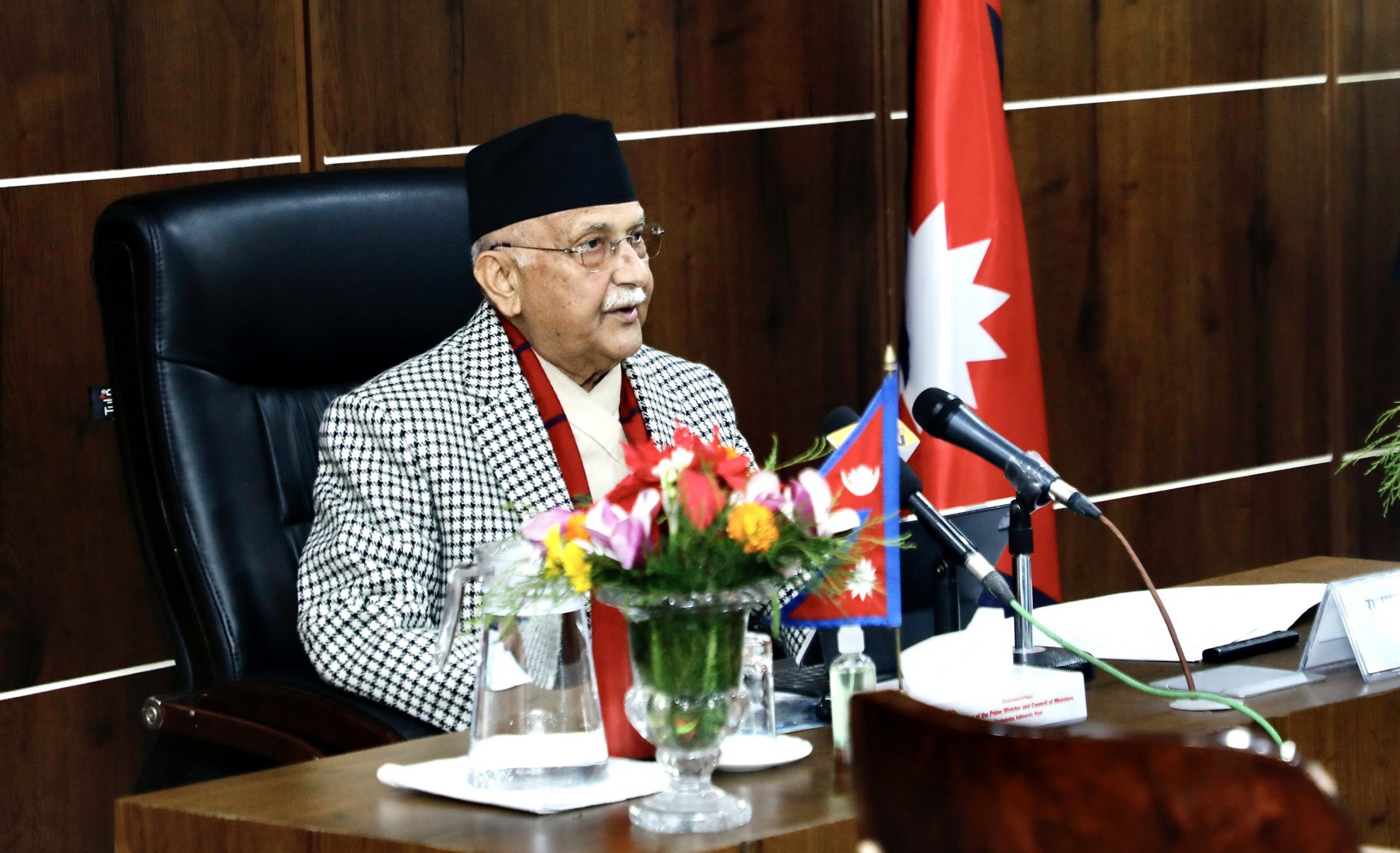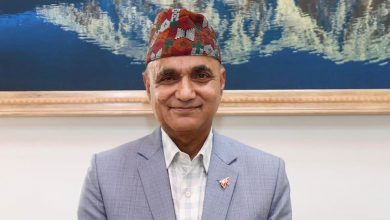Sagarmatha Sambaad to discuss issues of global and regional importance, PM Oli says

प्रधानमन्त्री तथा मन्त्रिपरिषद्को कार्यालय, सिंहदरबारमा अन्तर्राष्ट्रिय हिमनदी वर्ष, २०२५ का अवसरमा वन तथा वातावरण मन्त्रालय र परराष्ट्र मन्त्रालयद्वारा मङ्गलबार आयोजित सगरमाथा संवाद कार्यक्रम ‘लन्चिङ’ मा प्रधानमन्त्री केपी शर्मा ओली । tl:a/M ls/0f/fh lji6÷/f;;
Kathmandu: Prime Minister KP Sharma Oli has said that the Sagarmatha Sambaad (Dialogue) to be held in May would discuss the relevant topics of global and regional importance.
Declaring the date for the Dialogue on Tuesday at a programme organised by the government, PM Oli said the Dialogue aligns with Nepal’s policy to deepen global understanding and cooperation through the means of talks, consensus and collaboration.
This Dialogue is inspired by common interests and the shared welfare of humankind. The government has planned to host the event, the multi-stakeholder international dialogue forum, for the first time with a focus on climate change, mountains and the future of mankind.
“We have decided to organize the first edition of Sagarmatha Sambaad in May 2025 under the theme ‘Climate Change, mountains and the future of mankind’. While declaring the organization of the Dialogue, we would like to express our solidarity to the International Year of Glaciers’ Preservation (IYGP) of the UN,” the PM added.
PM Oli stated the Sambaad is aimed at preserving the glaciers from further melting and aware the people about the importance of rare natural resources like the snow-capped Himalayas.
He said that several industrial countries made themselves prosperous at the cost of nature and added that such practices have also fueled the agendas of the climate change.
Our patterns of consumption and production are not sustainable at all and many industrialized countries have enriched themselves at the expense of nature, PM Oli said adding that such trends have also exacerbated the issue of climate change. “Disasters included by erratic climate have cost many lives and made the road to development ever costlier,” the PM observed.
The PM said that the response to many maladies of today should rest on collective contemplation and shared reflections. Oli elaborated that the Sagarmatha Sambaad will add value for at least three reasons, namely sharing Nepal’s success stories; unique historical outlook of Nepal and the location that Nepal offers.
He shared that it would share the domestic success stories of Nepal adding that we must not forget the gains that Nepal has made in the recent years.
“Moreover, we have been a staunch supporter of multilateralism and rules-based international order. Our foreign policy is that of amity with all, and enmity with none. Nepal is increasingly an important voice in issues of climate change, migration and sustainable development,” the PM added.
He expressed his concerns saying that our naked eyes can see the fast-depleting ice coverage in the Himalayas. “And the worry is not that the mountains are becoming less picturesque. It is not a question of whether the mountains are still photogenic. The very survival of people, societies and culture is at stake in the context of climate disasters.”
Referring to the cases of glacier lake outburst flood in Thame in the Everest region, the flood in the Bagmati Province during the incessant post-monsoon pouring, the PM said the nature emergencies have posed threat to survival, sustenance and progress of a mountainous country like Nepal adding that such incidents have now become more routine phenomena rather than rate disasters.
“Despite our minimal carbon footprint, Nepal faces devastating climate impacts. However, Nepal is committed to achieving net-zero emissions by 2045 and implementing ambitious climate plans,” the PM stated. We have expanded forests, promoted the clean energy, and safeguarded biodiversity, the PM said, adding that our efforts are not sufficient and we cannot forever overcompensate for the complacency of those who were historically responsible for the climate crisis.
“Together, we can forge a sustainable and equitable future – a future of resilience against poly-crisis,” the PM concluded.









Comments